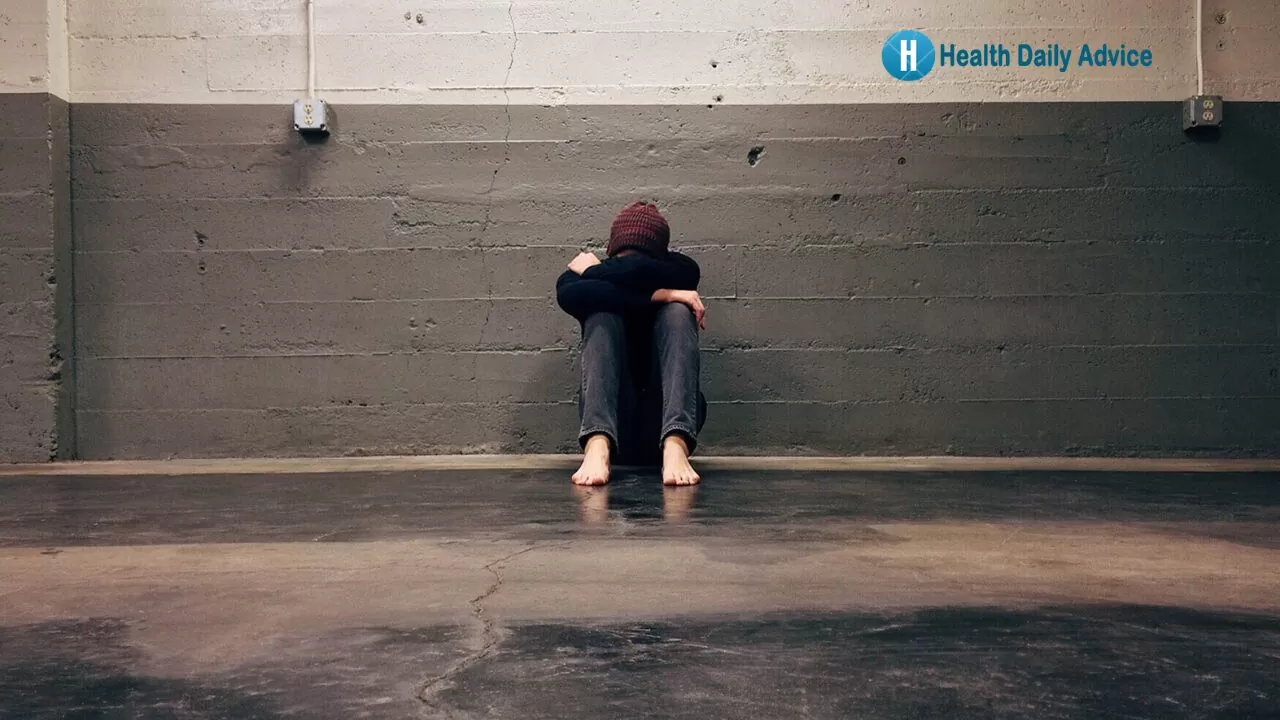Introduction
Men’s mental health is often overlooked or ignored in our society, but it is a serious issue that affects millions of men around the world. According to the World Health Organization, more than 264 million people suffer from depression, and suicide is the second leading cause of death among 15-29-year-olds. Men are more likely to die by suicide than women, and they are less likely to seek help or treatment for their mental health problems.
Many factors can contribute to men’s mental health issues, such as stress, trauma, social isolation, stigma, and gender norms. However, there are also some common habits or behaviors that can worsen men’s mental health and make them more vulnerable to depression, anxiety, and other disorders. In this article, we will explore six of these things and how to avoid them.

6 Things That Worsen Men’s Mental Health
1. Bottling Up Emotions
One of the most harmful things that men can do to their mental health is to suppress or hide their emotions. Many men are taught from a young age that expressing emotions is a sign of weakness or femininity, and that they should be strong, stoic, and independent. However, this can lead to a lot of internal pressure and frustration, and prevent men from getting the support or help they need.
Bottling up emotions can also affect men’s physical health, as it can increase the risk of heart disease, high blood pressure, and chronic pain. Moreover, it can impair men’s relationships, as they may struggle to communicate, empathize, or connect with others.
To avoid this, men should try to be more open and honest about their feelings, and seek out healthy outlets to express them. This can include talking to a trusted friend, family member, or therapist, writing in a journal, or engaging in creative activities. Men should also challenge the stereotypes and myths that prevent them from showing emotions, and realize that being vulnerable is not a weakness, but a strength.

2. Avoiding Professional Help
Another thing that can worsen men’s mental health is avoiding professional help when they need it. Many men are reluctant to seek help for their mental health problems because they fear being judged, stigmatized, or seen as less masculine. They may also think that they can handle their problems on their own, or that they are not serious enough to warrant attention.
However, avoiding professional help can have serious consequences, as it can delay the diagnosis and treatment of mental health disorders, and increase the risk of complications, such as substance abuse, self-harm, or suicide. According to a study by the American Psychological Association, only 40% of men who experience depression or anxiety seek professional help, compared to 57% of women.
To avoid this, men should recognize the signs and symptoms of mental health problems, and seek help as soon as possible. They should also realize that seeking help is not a sign of weakness or failure, but a sign of courage and responsibility. There are many options available for men who need help, such as online counseling, support groups, or medication. Men should also reach out to their friends, family, or peers who have gone through similar experiences and learn from their stories and advice.

3. Neglecting Self-Care
A third thing that can worsen men’s mental health is neglecting self-care. Self-care is the practice of taking care of one’s physical, mental, and emotional well-being, and it is essential for maintaining a healthy and balanced life. However, many men neglect self-care, because they are too busy, stressed, or focused on other priorities, such as work, family, or social obligations.
Neglecting self-care can harm men’s mental health, as it can lead to burnout, fatigue, irritability, and low self-esteem. It can also affect men’s physical health, as it can increase the risk of obesity, diabetes, heart disease, and cancer.
To avoid this, men should make self-care a priority, and incorporate it into their daily routine. Self-care can include a variety of activities, such as getting enough sleep, eating a balanced diet, exercising regularly, meditating, relaxing, or pursuing hobbies. Men should also set healthy boundaries, and learn to say no to things that drain their energy or time. Men should also treat themselves with kindness, compassion, and respect, and celebrate their achievements and strengths.

4. Comparing Themselves to Others
A fourth thing that can worsen men’s mental health is comparing themselves to others. In today’s society, men are constantly exposed to unrealistic and idealized images of success, happiness, and masculinity, through social media, advertisements, or celebrities. These images can create a lot of pressure and expectations for men, and make them feel inadequate, insecure, or unhappy with themselves.
Comparing themselves to others can also affect men’s mental health, as it can lead to low self-esteem, depression, anxiety, or body image issues. According to a study by the University of Missouri, men who use social media frequently are more likely to experience depression, and men who compare themselves to others on social media are more likely to experience envy and dissatisfaction.
To avoid this, men should try to limit their exposure to social media, and be more selective and critical of the information they consume. They should also focus on their own goals, values, and achievements, and not on what others have or do. Men should also practice gratitude, and appreciate what they have and who they are. Men should also remember that everyone has their struggles and challenges and that no one is perfect.

5. Isolating Themselves from Others
A fifth thing that can worsen men’s mental health is isolating themselves from others. Many men tend to withdraw or isolate themselves when they are feeling stressed, depressed, or anxious, because they do not want to burden others, or they do not think that others will understand or help them. However, this can make them feel more lonely, isolated, and hopeless, and prevent them from getting the support or comfort they need.
Isolating themselves from others can also affect men’s mental health, as it can increase the risk of depression, suicide, and dementia. According to a study by the Harvard Medical School, men who have fewer social connections are more likely to die prematurely, and men who have no close friends are more likely to suffer from depression.
To avoid this, men should try to maintain and strengthen their social connections and reach out to others who care about them. This can include friends, family, colleagues, or community members. Men should also try to join or participate in groups or activities that interest them, and meet new people who share their passions or values. Men should also be more open and honest with others, and share their feelings, thoughts, and experiences.

6. Abusing Alcohol or Drugs
A sixth thing that can worsen men’s mental health is abusing alcohol or drugs. Many men use alcohol or drugs as a way to cope with their stress, pain, or emotions, or to escape from their problems or reality. However, this can have a detrimental effect on their mental health, as it can worsen their symptoms, impair their judgment, and create more problems or conflicts.
Abusing alcohol or drugs can also affect men’s physical health, as it can damage their liver, brain, heart, and other organs. It can also affect their relationships, as it can cause them to be more aggressive, violent, or irresponsible. According to the National Institute on Drug Abuse, men are more likely than women to abuse alcohol or drugs, and they are more likely to die from overdoses or accidents related to substance use.
To avoid this, men should try to reduce or quit their alcohol or drug use and seek help if they have an addiction or dependence. They should also find healthier and more effective ways to cope with their stress, pain, or emotions, such as therapy, meditation, exercise, or hobbies. Men should also seek support from others who have overcome or are dealing with similar issues and learn from their strategies and tips.

Conclusion
Men’s mental health is a serious and important issue that deserves more attention and awareness. Many things can worsen men’s mental health, such as bottling up emotions, avoiding professional help, neglecting self-care, comparing themselves to others, isolating themselves from others, and abusing alcohol or drugs. However, there are also many ways to avoid or overcome these things and improve men’s mental health and well-being. Men should be more proactive and mindful of their mental health, and seek help or support when they need it. Men should also be more compassionate and supportive of each other, and break the silence and stigma around men’s mental health.
Frequently Asked Questions
Some common signs of poor mental health in men are:
1. Feeling sad, hopeless, or worthless
2. Losing interest or pleasure in activities they used to enjoy
3. Having trouble sleeping, eating, or concentrating
4. Experiencing mood swings, irritability, or anger
5. Having thoughts of harming themselves or others
6. Feeling isolated, lonely, or misunderstood
7. Having low self-esteem, confidence, or motivation
8. Having problems with work, school, or relationships
9. Using alcohol or drugs to cope or escape
1. Their physical health, as well as poor mental health, can increase the risk of chronic diseases, such as heart disease, diabetes, and cancer
2. Their relationships, as poor mental health, can affect their communication, intimacy, and trust with their partners, family, and friends
3. Their productivity, as poor mental health, can impair their performance, creativity, and motivation at work or school
4. Their happiness, as poor mental health can prevent them from enjoying life and achieving their goals
Men can improve their mental health by:
1. Seeking professional help when they need it, and not being afraid or ashamed to ask for support or guidance
2. Practicing self-care, and taking care of their physical, mental, and emotional needs
3. Being more open and expressive about their feelings, and finding healthy ways to cope with stress, pain, or emotions
4. Avoiding or reducing alcohol or drug use, and seeking help if they have an addiction or dependence
5. Maintaining and strengthening their social connections, and reaching out to others who care about them
6. Comparing themselves less to others, and being more grateful and confident about themselves
7. Challenging and changing the negative stereotypes and norms that affect men’s mental health, and being more compassionate and supportive of other men
Men can find more resources or information about mental health from:
1. Their doctor, therapist, or counselor, can provide them with diagnosis, treatment, or referral options
2. Their employer, school, or community, may offer mental health services, programs, or workshops
3. Online platforms, such as websites, apps, or podcasts, that provide mental health information, advice, or support
4. Organizations, such as the Movember Foundation, the Men’s Health Network, or the National Alliance on Mental Illness, advocate and raise awareness for men’s mental health
5. Hotlines, such as the National Suicide Prevention Lifeline or the Substance Abuse and Mental Health Services Administration, provide 24/7 crisis support or counseling
I hope you found this article helpful and informative. If you have any questions or feedback, please feel free to leave a comment below. Thank you for reading.
Note:
So in This Post, 6 Things That Worsen Men’s Mental Health what points can you think of/have experienced? Let me know in the comments.
If you found this helpful feel free to share your experience if you can relate to these points and if you are comfortable share
For More Articles Related to Mental Health Stay Tuned To our Site












